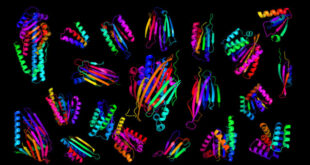
The FTC is playing whack-a-mole with pseudoscience again, and this time it’s targeting homeopathy. Their latest comments contend (PDF) that the standard disclaimer isn’t enough to dissuade consumers from buying this crap, so now not only do homeopathic products have to carry the standard disclaimer, they also have to say there’s no science behind them.
I support the idea that it’s your body, so do with it what you want, and if taking homeopathic sugar pills makes you feel better, sure, keep taking them. But the only reason I can’t make a blanket statement that homeopathy provides no benefit whatsoever is the placebo effect. To paraphrase Tim Minchin’s memorable, NSFW rant on alternative medicine, Storm, without fail or exception every kind of alternative medicine has either not been proved to work, or been proved not to work. Do you know what alternative medicine is called that’s been proven to work? Medicine. Homeopathy must not be confused for medicine.
The FTC agrees, and they’re really emphatic about it. Homeopathic products don’t work: because further dilution is supposed to increase a homeopathic remedy’s strength, many homeopathic products contain no detectable traces of their title ingredients. This hilarity is a good thing for consumers, because homeopathy’s other fundamental principle of “like cures like” means the solutions could be deadly if they actually contained any of their title ingredients: among a great many other products, homeopaths prescribe nux vomica (strychnine), arsenica album (arsenic) and even teething products containing extract of belladonna, which it turns out is not great for kids. In reality, homeopathic products tend to be recalled when it’s discovered that they contain their title ingredient. Three separate times in their recent press release, the FTC maintains that the standard “has not been proven to treat or cure any condition” disclaimer is unlikely to be enough to adequately convey how completely valueless homeopathic solutions are. Homeopathy has been rejected by science, medicine and now by the FTC.
Debunking homeopathy has already been done so beautifully that nobody needs me to do it here. If you haven’t yet had a headache today, go search for “succussion” and that’ll fix that right up for ya. I present to you Munroe’s razor:

Image: Randall Munroe, xkcd.com/808/
This is not government overreach. This is the government intervening to put the kibosh on outright fraud. Products which definitionally cannot do what they claim to do and contain none of what they claim to contain are fraudulent. Nobody benefits from their sale but the fraudster. This is the FTC attempting to intervene in the one way it can, because the next step up would be banning homeopathic products outright and we don’t have a reason to go there yet. Consumers can buy what they want, even if it’s terribly advised. The principle of caveat emptor puts the responsibility on the buyer to not go carting off pallets of triple-distilled homeopathic 40C oleus serpentius.
 #Bizwhiznetwork.com Innovation ΛI |Technology News
#Bizwhiznetwork.com Innovation ΛI |Technology News



